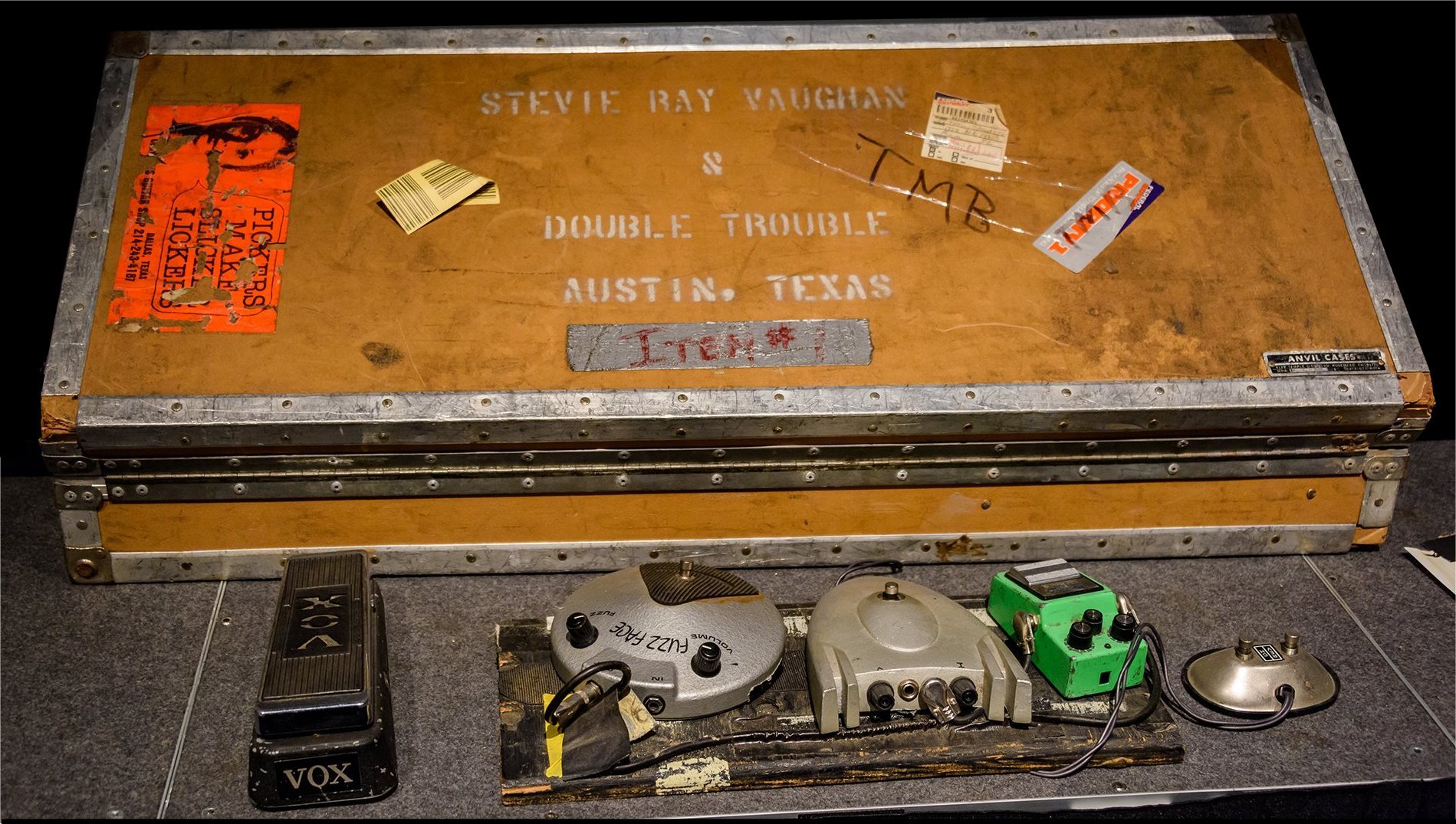
He listened to blues artists such as Albert King, Otis Rush, and Muddy Waters, and rock guitarists such as Jimi Hendrix and Lonnie Mack, as well as jazz guitarists including Kenny Burrell. Learning by ear, he diligently committed himself, following along to songs by the Nightcaps, particularly "Wine, Wine, Wine" and "Thunderbird". In 1961, for his seventh birthday, Vaughan received his first guitar, a toy with only three strings. In the early 1960s, Vaughan's admiration for Jimmie resulted in him trying different instruments such as the drums and saxophone. In later years, Vaughan recalled that he had been a victim of Jim's violence. Jim struggled with alcohol abuse, and often terrorized his family and friends with his bad temper. A shy and insecure boy, Vaughan was deeply affected by his childhood experiences. The family frequently moved, living in other states such as Arkansas, Louisiana, Mississippi, and Oklahoma before ultimately moving to the Oak Cliff suburb of Dallas.
#STEVIE RAY VAUGHAN GUITAR RIG MANUAL#
Jim secured a job as an asbestos worker, an occupation that involved rigorous, manual effort. Stephen Ray Vaughan was born on October 3, 1954, in Dallas, Texas he was three-and-a-half years younger than his brother Jimmie (born 1951). After returning from service, Jim met Martha Cook (1928–2009) while working as an attendant at a 7-Eleven convenience store in Dallas they married on January 13, 1950. Jim, who dropped out of school at the age of sixteen, enlisted to serve with the United States Navy on the outbreak of World War II. On September 6, 1921, Thomas and Laura had a son they named Jimmie Lee Vaughan people called him Jim. They moved onto a region of land in Rockwall County and made their living off of sharecropping. She married a man from Arkansas named Thomas Lee Vaughan. Robert had a daughter named Laura Belle LaRue, Vaughan's paternal grandmother.

Vaughan's ancestry has been traced as far back as the nineteenth century, to his great-grandfather Robert Hodgen LaRue. Vaughan's paternal great-grandfather, Robert Hodgen LaRue, circa 1900s 3.3 Stevie Ray Vaughan and Double Trouble.


Rolling Stone ranked Vaughan as the twelfth greatest guitarist of all time. Earning six Grammy Awards and ten Austin Music Awards, he was inducted into the Blues Hall of Fame in 2000 and the Musicians Hall of Fame in 2014. In 1984, the Blues Foundation named him Entertainer of the Year and Blues Instrumentalist of the Year, and in 1987 Performance Magazine honored him with Rhythm and Blues Act of the Year. In 1983, readers of Guitar Player voted him as Best New Talent and Best Electric Blues Guitar Player. Vaughan received several music awards during his lifetime and posthumously. However, Vaughan occasionally used pedals to augment his sound, mainly to boost the signal, although he occasionally employed a rotating speaker cabinet and wah pedals for added textural flair." Chris Gill of Guitar World commented: "Stevie Ray Vaughan's guitar tone was as dry as a San Antonio summer and as sparkling clean as a Dallas debutante, the product of the natural sound of amps with ample clean headroom. He often combined several different amplifiers together and used minimal effects pedals. He favored clean amplifiers with high volume and contributed to the popularity of vintage musical equipment. Vaughan was inspired musically by American and British blues rock. After achieving sobriety in late 1986, he headlined concert tours with Jeff Beck in 1989 and Joe Cocker in 1990 before his death in a helicopter crash on August 27, 1990, at the age of 35. The ten-song album was a commercially successful release that sold over half-a-million copies. He gained fame after his performance at the Montreux Jazz Festival in 1982, and in 1983 his debut studio album, Texas Flood, charted at number 38. He then formed his own group, Triple Threat Revue, before renaming the band Double Trouble after hiring drummer Chris Layton and bassist Tommy Shannon.

He played gigs with numerous bands, earning a spot in Marc Benno's band, the Nightcrawlers, and later with Denny Freeman in the Cobras, with whom he continued to work through late 1977. In 1971, he dropped out of high school and moved to Austin the following year. Allmusic describes him as "a rocking powerhouse of a guitarist who gave blues a burst of momentum in the '80s, with influence still felt long after his tragic death." īorn and raised in Dallas, Texas, Vaughan began playing guitar at the age of seven, inspired by his older brother Jimmie. In spite of a short-lived mainstream career spanning seven years, he is widely considered one of the most influential electric guitarists in the history of blues music, and one of the most important figures in the revival of blues in the 1980s. Stephen Ray Vaughan (Octo– August 27, 1990), known as Stevie Ray Vaughan, was an American musician, singer, songwriter, and record producer.


 0 kommentar(er)
0 kommentar(er)
